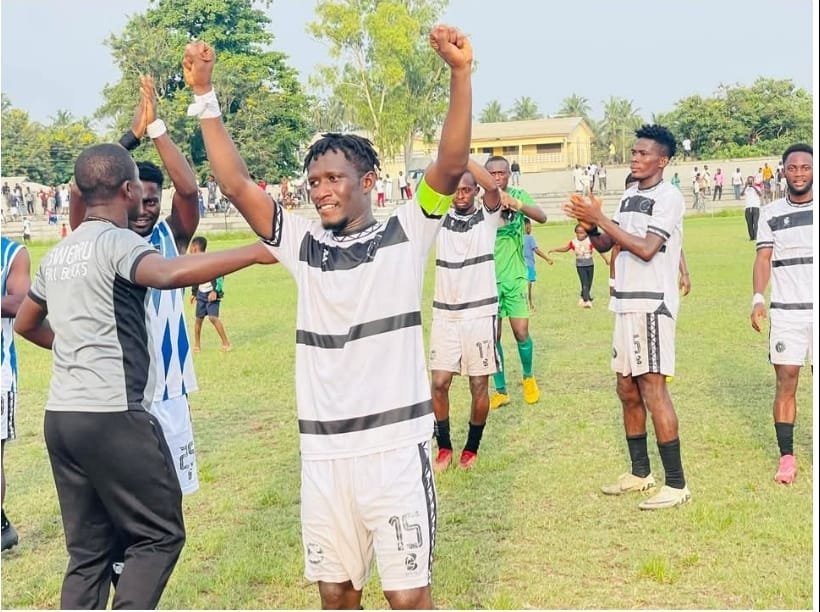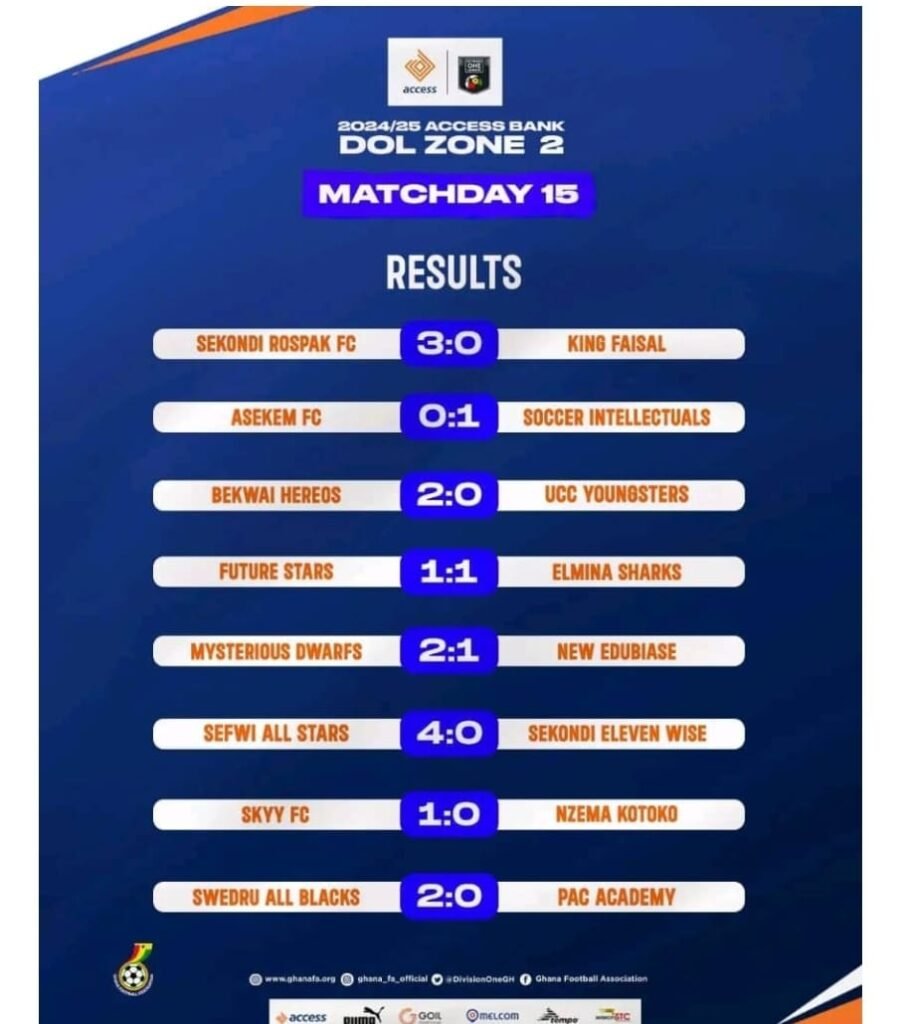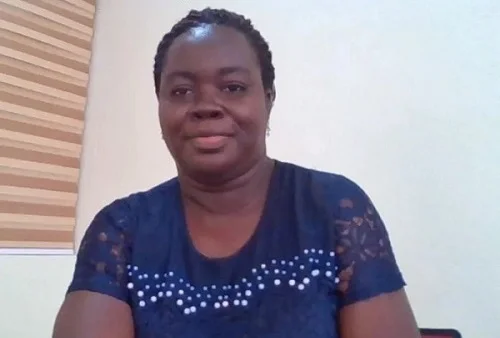Hot!
Joy Prime’s Prime Morning celebrates May Day with gallant officers of Ghana Navy

The flagship morning show on Joy Prime, Prime Morning, became the first in Ghana to host a morning show on a ship at sea with the Ghana Navy.
The Ghana Navy protects the maritime territory of Ghana, making them mostly based at sea. As a result, they are not well known in the country.

As part of this year’s May Day celebrations, the team decided to recognise the effort of the Ghana Navy in nation-building, thereby transmitting the four-hour show live from the Western Naval Command in Takoradi.
The spotlight of the day was based on the activities that take place at sea and the responsibilities of the Ghana Navy as a wing of the Ghana Armed Forces in safeguarding the territorial integrity of the country.
Activities include how ships navigate around the sea, the drill, diving training, how boat arrests are conducted at sea, and the medical aspect of the ship, among other experiences at sea.

The presenters, Roselyn Felli, Asieduwaa Akumia, and KMJ, the Royal Host, participated in some of the activities just to get a feel of how the work is done.
The show brought to life the Ghana Navy by highlighting the untold stories of the personnel at work on the ship and educating viewers who may have an interest in venturing into the force.
Some social media users could not hold their excitement over the impact the show has on them and took to Joy Prime’s pages to share their thoughts.

The Flag Officer Commanding of the Ghana Navy, Commodore E.A. Kwafo, who spoke on the show, shared the recruitment requirement for interested persons.
“You have to be a Ghanaian, and because of the nature of our military training, we don’t forgive. So, you’ll require academic qualifications, and it will determine which branch you belong to. Whether an officer or another rang, we have first-degree holders from various qualifications taking into our various branches. We also have professionals like doctors, lawyers, and engineers. So, it depends on your qualifications and also on your age. The age limit varies, and we have up to a minimum of seventeen and half (17 1/2). But for graduates, it gets to 24 or 25,” Commodore Kwafo explained
He also added that “for lawyers and doctors who, by virtue of their education, are likely to be older, we could extend the age to about thirty-two (32) and normally we take degrees with a science background because sometimes it involves calculation.”
AB2 Akutor Sarah Precious, a 21-year-old diver among the only three female divers in the Ghana Navy, also shared her experience so far after joining the force.
“My experience is that so far, when you get under the water, you can face a lot of challenges. You can see maybe submarines and a lot of other things, but you need to comfort yourself while coming out. You need to be calm and brave.”
The Ghana Navy was initiated by the colonial British administration to conduct seaward patrols and served under the command of British Royal Navy officers. It was later established on July 19, 1959, by an Act of Parliament with two divisions based at the Western regional capital, Takoradi, and Greater Accra, respectively.
Historically, the force was headed by the British until September 1961, when Ghana’s first president, Osagyefo Dr. Kwame Nkrumah, terminated the employment of British officers in the armed forces.
The command structure consists of the Naval Headquarters at Burma Camp, Accra. Its three operational commands are the Western Naval Command at Sekondi, the Eastern Naval Command at Tema, and the Naval Training Command at Nutekpor-Sogakope in the Volta Region.
The force is organised in different departments to monitor and supervise fishing activities and evacuation operations of Ghanaian and other nationals from troubled spots, amongst a broad range of roles.
It was certainly an unforgettable experience for the Prime Morning team at sea with the Ghana Navy in celebration of the 2024 May Day, also called Labour Day.
Hot!
Swedru All Blacks back to winning ways, Roshan humble King Faisal

Sekondi Rospak FC made it eight wins in eight successive home games after three second-half goals from John Amoah, Joseph Ntow and Stephen Anthony Kofi. John Amoah opened the scoring in the 55th minute after a barren first half. Joseph Ntow added to the tally in the 56th minute before Stephen Anthony Kofi rounded things up in the 74th minute to give Rospak a 3-0 win over former Premier League side King Faisal.
Elsewhere at Swedru – leaders Swedru All Blacks humbled PAC Academy in an emphatic 2-0 win. Zayat Bubakari scored first for Swedru All Blacks in the 27th minute before Rudolf Junior Nana Kwasi Mensah made it 2-0 in the 34th minute. Swedru All Blacks are top of the table with 36 points – 4 points ahead of second placed Rospak FC.
Meanwhile, Former Premier League side Cape Coast Mysterious Dwarfs recorded their fourth successive home victory after beaten New Edubiase United 2-1 at the Robert Mensah Park. Enoch Odoom struck first for Cape Coast Mysterious Dwarfs in the 19th minute but Steven Asante equalized for New Edubiase United before halftime. After the interval, Godfred Eshun scored from distance in the 65th minute to help Cape Coast Mysterious Dwarfs secure all the points.
Here are the results in Zone Two

Hot!
Cervical Cancer alert: Avoid sex at early age

The Programmes Manager of Non-Communicable Diseases (NCDs) of the Ghana Health Service (GHS), Dr Mary Efua Commeh, has advised young girls to avoid sex at an early age.
This, she explained, will give the cervix the opportunity to mature before they become sexually active.
“You need to delay what we call the first sexual intercourse as much as possible to give the cervix the opportunity to mature before the person becomes sexually active,” she said.
Dr Commeh stated this in an interview with The Spectator in Accra on Tuesday as a part of the Cervical Cancer awareness month.
According to her, cervical cancer was the second leading female cancer in Ghana with a total of about 3,072 cases annually, and out of that, 1,815 deaths are recorded, representing more than 50 per cent.
She indicated that “If young girls are going to be sexually active, then you need to talk to your parents about being vaccinated.”
She explained that vaccinating young girls against human papillomavirus (HPV) has been found to be a very effective way of preventing cervical cancer.
“There are countries that started HPV vaccination years ago and they are not seeing any cervical cancers now because they would have eliminated most of the high-risk HPVs in their women. So if the high-risk HPV is not there, then obviously the results on cervical cancers are going to go down,” she added.
Dr Commmey said the HPV vaccination is recommended for young girls aged nine to 14 years, adding that it had been found to be highly effective, not just for cervical cancers but for other HPV-related cancers, such as anal cancers, cancers of the vagina, genital warts, amongst others.
She further elaborated that the idea is to put up a barrier before the HPV comes in and that once a young female encounters it, she is already protected.
She also mentioned that for cervical cancers, the main cause is called HPV infection, saying generally, all sexually active women acquire HPV at some point in their lives.
However, the Programmes Manager of NCDs at the GHS mentioned that the body has a way of clearing the HPV, explaining that it is a natural mechanism that goes on, unfortunately, there are a few women whose HPV persists.
Moreover, she noted that the numbers for Cervical Cancer tend to be much higher because at times, clients would wait, and try all sorts of medications before they finally report to the health facility saying “we actually lose some women before they get to the hospitals with over 75 per cent of the cases coming in its third and fourth stages.”
Dr Commey, therefore, called for public awareness while ensuring the availability of information for prevention and control.
By Jemima Esinam Kuatsinu







